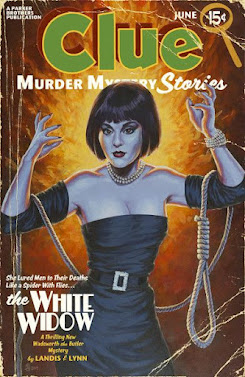Just Finished Reading: The Regency Revolution – Jane Austen, Napoleon, Lord Byron and The Making of The Modern World by Robert Morrison (FP: 2019) [289pp] Despite being a determined fan of the works of Jane Austen I often wondered at the (generally speaking) noticeable lack of servants, tradespeople and especially the poor in both her novels and, especially, in her many on-screen adaptations. Likewise, the oft referenced ‘timelessness’ of these often-brilliant portrayals of Regency society relies on the lack of actual, sometimes inconvenient, historical references. With those observations in mind, it should hardly come as much of a surprise that Austen’s image – especially through the more modern lens of contemporary TV and movie adaptations – has little in common with the reality of Regency England. No doubt this is greatly responsible for the romanticisation of the period and the (very) misplaced desire of those who would choose to live there (a temporary visit might be ‘interesting’ as long as you’ve had the required vaccines for visiting a ‘3rd world country’ that’s in the process of societal collapse).
So, what exactly did Austen get ‘wrong’ about the period she lived in and gave us to chuckle over? In as few words as possible – everything. The Regency (1811-1820) happened because of the ‘madness of King George III’ and his incapacitation to continue as monarch. In his place, the future King George IV, was installed as Regent until either the King recovered or didn’t. When George III died in 1820 his son, the Regent, became King and the Regency Period ended. During those brief but eventful 10 years England went through quite a lot – both good and bad. Firstly, the Regent himself was (very much!) a man who just wanted to have fun, including lots of food, drink and especially women. Even in the rather uber-liberal age through which he cruised, the Regent was a constant scandal which resulted in him being the constant butt of jokes and salacious cartoons. Interestingly, many fights – and victories – over the freedom of the Press revolved around attacks on the Regent, so we have at least that to thank for him.
The other regular theme throughout the period – ignoring for the moment both the Napoleonic Wars and the War of 1812 – was the social and political upheaval in England, Scotland and (as was often the case) Ireland. The Irish unrest can, largely, be laid at the feet of famine and systemic neglect by absentee landlords. Scotland was at the same time in the throes of the consequences of highland clearances and the resulting diaspora into England and across the Empire, plus to America (often joined by their Irish compatriots). The English unrest was the result of poverty, political oppression (to suppress the growing movements to increase the franchise) and, of course, increasing industrialisation – this was the time of the Luddites. To say that the whole country was convulsed by political and social upheavals would be understating the fact.
Covering a LOT of ground, the author concentrated on crime and punishment (very interesting), the theatre (rather long and not very interesting from my PoV), sex (again unnecessarily too long), Empire and war (definitely more my subject) and the changes happening with the increasing use of steam technology and its greater knock-on effects (ditto). Overall, it was an interesting (and often very interesting) read. The author did irritate me slightly with ‘woke-ish’ comments – especially in regard to attitudes to sexuality – which I really don’t think have a place in historical analysis. Whilst criticism of actions or decisions by historical figures in certainly valid it’s inappropriate to judge people in the early 19th century by attitudes and beliefs of those in the early 21st. We know only too well that the past is a foreign country and that they do things differently there. No doubt 100 years hence (if the species survives that long) we will be, equally inappropriately, heavily criticised by our descendants for similar moral failings. Definitely worth a read – especially if all of your previous knowledge of the period came from Miss Austen – but be prepared to be shocked and dismayed by the acts of far too many who should have known better.
On a final note: It does amuse me greatly when I hear people profess to wish that they could have lived during the Regency. It should be remembered that women in particular, even those of high birth, had vanishing little power, little education and could not control their own finances. On marriage whatever they did own (including themselves!) became the legal property of their husbands. Divorce was almost unknown in England and had to be obtained (when it could and usually by the husband) by an Act of Parliament... and don’t get me started on the dangerous activity of childbirth. In an era before the Germ Theory of disease, with zero access to anesthesia or anti-biotics you could literally die from a bad tooth or a papercut – no matter your personal wealth! This was an age where they fought duels of ‘honour’, were sudden poverty on the death or disability of the bread-winner could result in the starvation of families and where children were executed for stealing apples. The Regency was most certainly not an Austenesque romantic fantasy – as you will find out between these pages! Be warned.








































.jpg)









